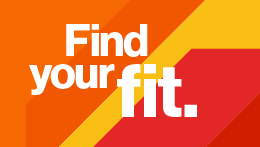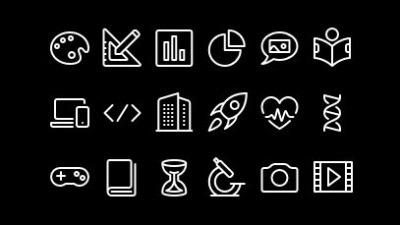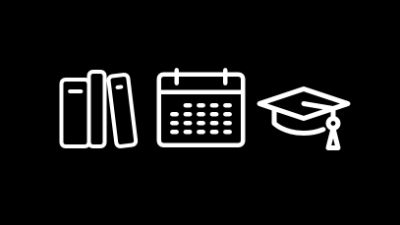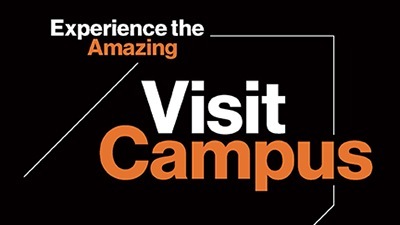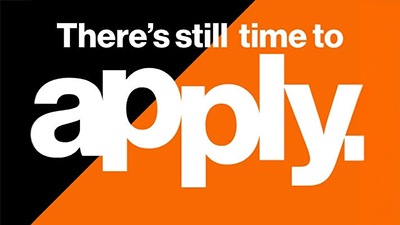Resources for the Deaf and Hard-of-Hearing Community

SAISD
Resources for the Deaf and Hard-of-Hearing Community
- RIT/
- National Technical Institute for the Deaf/
- About NTID/
- RIT/NTID Student Life/
- SAISD/
- Resources for the Deaf and Hard-of-Hearing Community
Show: Rochester, NY Area All
Substance Use Disorder Services
CaringWorks, Inc.
275 Washington St SW
Atlanta, Georgia. 30303
(404) 537-3994
Makoto Ikegami, ASL Therapist
makotoikegami@caringworksinc.org
(404) 537-3994
CaringWorks provides the only Deaf or Hard of Hearing (DHH) homeless program in the Southeast. The program includes residential treatment and recovery services for homeless DHH adults. Only four comparable programs exist in the United States, yet estimates show that thousands of homeless DHH individuals need these services. CaringWorks provides its DHH program at Hope House. It offers culturally and linguistically competent therapeutic services to DHH men. Hope House currently has designated 12 beds for this special-needs population. DHH staff members are fluent in American Sign Language, competent in Deaf Culture, and trained in evidenced-based practices provide the services. The program empowers DHH men to maintain sobriety...
Deaf Community Services/ Signs of Life
1545 Hotel Circle S
#300
San Diego, California. 92108
619-550-3434
619-550-3436
Kenny Furchner, Program Manager
kfurchner@dcsofsd.org
619-550-3434
SOL is an outpatient addiction recovery program for deaf and Hard of hearing adults over 18 years old. We offer 4x weekly meetings, one-on-one meetings, and sober-living houses.
John L. Norris Addiction Treatment Center
1732 South Ave
Rochester, New York. 14620-4238
8666814627
5854614545 (Fax)
Jason Goldwasser, Director
jason.goldwasser@oasas.ny.gov
5854610410 x 238
The Norris Addiction Treatment Center is a 44-bed inpatient treatment program. Patient services are provided through a structured treatment program which includes a strict set of behavioral guidelines, an intensive treatment program schedule, and individualized treatment. This program is also the designated program for deaf and hard of hearing individuals in the State of New York. Counselors from Substance and Addiction Intervention Services for the Deaf (SAISD) provide services including counseling, psycho-educational groups and informational lectures. Norris Addiction Treatment Center also utilizes ASL interpreters as appropriate.
MN Substance Use Disorder Program for Deaf and Hard of Hearing Individuals
M Health Fairview
2312 South 6th St.
Minneapolis, Minnesota. 55454
651-964-1427 (vp)
612-273-4459
612-273-4461 (Fax)
Jaimelyn Purves, Lodging Plus Admissions Counselor
jaimelyn.purves@fairview.org
651-964-1427 (vp)
The M Health Substance Use Disorder Lodging Plus Program is located within the University of Minnesota Medical Center, Fairview, at the Riverside campus in Minneapolis, Minnesota. The Program is committed to serving Deaf, Hard of Hearing and DeafBlind clients embedded within the larger hearing population.
For assistance, contact Jaime Purves at jaimelyn.purves@fairview.org or 651-964-1427(vp) or Deb Guthmann at dguthmann@aol.com
Deaf and Hard of Hearing Services
Deaf Refugee Advocacy Inc
POB 10335
Rochester, New York. 14610
(585) 286-3440
Diana Pryntz, Executive Director
PryntzDRA@gmail.com
(585) 286-3440
We recognize that deaf refugees, asylum-seekers, immigrants, and those from US territories have unique needs that are best served and assisted by the members of the general Deaf community. Our mission is to
1) provide direct services (education and case management services),
2) promote advocacy and full language access for this population, and
3) outreach services (collaboration, consultation, and education) to existing community service organizations and agencies.
We aim to support them as they strive to be self‐sustaining neighbors while still retaining their own cultural heritage, identity, language, and religion. Furthermore, we wish to ensure their inclusion into our Deaf community and into general society.
Deaf Wellness Center
300 Crittenden Blvd
Rochester, New York. 14642
Dr. Amanda O'Hearn, Director
(585) 286-5041
The DWC provides evaluation and psychotherapy services to individuals age 17 and older, couples, and families. We also conduct psychiatric evaluations and provide consultation and forensic evaluation services to courts, governments, etc., on topics related to deafness, mental health, and healthcare. Several psychotherapy groups are also conducted at the DWC. Our psychotherapy groups are all-deaf and are conducted in sign language by our sign-fluent therapists. While most of our clients are deaf and use sign language, some are hard-of-hearing, oral deaf, or hearing people with deaf family members. The DWC accepts all forms of health insurance and there is a sliding fee scale for persons with limited income... (see website)
DePaul
1931 Buffalo Road
Rochester, New York. 14624
Mark Fuller, President
(585) 426-8000
DePaul is a progressive, private not-for-profit organization founded in 1958 that provides services in the following areas:
Addiction Prevention and Support Services
Affordable Housing
Mental Health Residential
Senior Living Communities
Support Programs
Vocational Programs
Lifespan of Greater Rochester
1900 S. Clinton Avenue
Rochester, New York. 14618
5852448994 (Fax)
Marina Barnum, Bilingual Care Manager (ASL)
mbarnum@lifespan-roch.org
5852448400
Eldersource Care Management - provides in-home assessment and care management. Caregiver consultation. Emotional wellness. There is a comprehensive listing of other services provided. Please refer to the website: www.lifespan-roch.org for more information.
PAHrtners Deaf Services
614 North Easton Road
Glenside, Pennsylvania. 19038
Dr. Melissa Watson, Senior Vice President
PAHinfo@rhanet.org
(215) 392-2425
We provide community based behavioral and mental health programs for individuals who utilize sign language as their primary mode of communication. Services include supportive living programs, outpatient therapy, psychiatric evaluations, medication management, case management, day programs and community participation supports. Funding varies by program. For Pennsylvania residents funding typically comes through a Pennsylvania county, Pennsylvania Office of Developmental Programs, a Pennsylvania Managed Care Organization or private insurance.
PAHrtners Deaf Services (West)
415 Moon Clinton Road
Moon Township, Pennsylvania. 15108
Dr. Melissa Watson, Senior Vice President
melissa.watson@rhanet.org
(412) 470-6930
We provide community based behavioral and mental health programs for individuals who utilize sign language as their primary mode of communication. Services include supportive living programs, outpatient therapy, psychiatric evaluations, medication management, case management, day programs and community participation supports. Funding varies by program. For Pennsylvania residents funding typically comes through a Pennsylvania county, Pennsylvania Office of Developmental Programs, a Pennsylvania Managed Care Organization or private insurance.
Regional Center for Independent Living
497 State Street
Rochester, New York. 14608
Bruce Darling, President/CEO
(585) 442-6470
The Regional Center for Independent Living (RCIL) assists people with all types of disabilities who want the opportunity to live independently and be active members of the community. Our core services include Information Referrals, Peer Support, Independent Living Skills Training, and Advocacy. We also offer specialty services that address a variety of needs including housing, accessibility, environmental modifications, benefits advisement, employment, and youth services.
Worcester Recovery Center Hospital
309 Belmont Street
Worcester, Massachusetts. 01604
508-368-4000
508-368-3313
508-363-1515 (Fax)
Jesse Wilson, Deaf Services Director
jesse.wilson@mass.gov
15083757200
Massachusetts Department of Mental Health
Worcester Recovery Center and Hospital INPATIENT MENTAL HEALTH SERVICES FOR DEAF & HARD OF HEARING PERSONS
Accepts individuals who:
• Require inpatient hospital level of care
• Utilize a signed language, visual-gestural communication or need other adaptations for successful communication
Serves:
• Deaf
• Hard of hearing
• Deaf-blind
• Late Deafened individuals
• Massachusetts residents
• Non-Massachusetts residents by arrangement
• Adults
• Adolescents, 14 and older, by special arrangement
Provides:
• Acute Stabilization
• Evaluation
• Evidence-based recovery approaches
• Discharge planning
• Court-ordered forensic evaluations
Self Help Meetings
12-Step Meetings, ASL or Interpreted, for San Diego County
Click on link above to see meeting schedule.
ASL Space TGWS (Thank God We’re Sober) Meeting List
Click the link above to see the meeting schedule.
Interpreted 12 Step Meeting-Foxhall Chapter Seven Group (Eden Prairie, Minnesota)
Click link above to view video recording.
Narcotics Anonymous ASL Online Meetings & Resources
Click the link above to view meeting schedule.
NA offers the following ASL (American Sign Language) resources. Please share this information with any addict who uses ASL. And please write to fsmail@na.org and let us know if you have any ideas or success with providing additional support to deaf and hard of hearing addicts seeking recovery.
National Meeting List – ASL and Interpreted Meetings
Click on link above to view meeting schedule.
Managed by Portland Deaf Access Committee (PDAC)
OMD – Minnesota AA Group (ASL interpreted)
A 2-hour Big Book study with ASL interpreters on Wednesdays at 7PM central/5PM pacific.
Click website above to be directed to zoom. (please email kmpsai@rit.edu if this is not a functional link or meeting)
Online Intergroup of Alcoholics Anonymous for the Deaf and Hard-of-Hearing
At the link above, select either ASL, ASL interpreter, American Sign Language, or Deaf/Hard of Hearing to show a list of ASL friendly meetings.
Vermont Recovery Group
Shane Green,
shanegreene077@gmail.com
Click link above to view meeting schedule.
Rochester Area AA Meetings
Rochester, New York
To find a meeting in ASL, find " Any Type", click and scroll down to Sign Language. To find a meeting on a specific day or any day, click on the day of the week and select "any day".
Deaf off Drugs and Alcohol (DODA)
Ohio
- Online video meetings in ASL (check website for schedule)
- Daily Thought/Daily Meditation/daily Prayer in ASL
Web Links
Alcohol Use during Coronavirus Crisis
In this video Kimberly Bostick, mental health counselor for Gallaudet University Counseling and
Psychological services, discusses some reasons why sheltering at home for Covid-19 can
negatively impact those in recovery.
Alcohol/Drug ASL Videos
These videos use signs for Drug and Alcohol related information using some different
registers/styles of language (consultative, casual, intimate).
ASL-STAR
This is an online portal where you can administer various screeners and assessments in American
Sign Language related to mental health, substance, and career.
Barriers To Treatment and Recovery
Individuals who are deaf or hard of hearing face a number of barriers when seeking help and support for a substance abuse problem. A number of factors, some of which are listed
below, can make it difficult for a person who is deaf or hard of hearing to access treatment services and to maintain a sober lifestyle upon completion of treatment.
Big Book
This is an American Sign Language (ASL) version of the Fourth Edition of the Big Book,
which is the basic text for Alcoholics Anonymous. This version of the Big Book in ASL is
signed by Deaf individuals. A.A. members maintain personal anonymity at the level of public
media. Any person appearing in this video is not an A.A. member.
Comparing Outcomes from an Online Substance Abuse Treatment Program and Residential Treatment Programs for Consumers who are Deaf: A Pilot Study
Numerous barriers exist when attempting to provide culturally-appropriate substance use disorder (SUD) treatment to persons who are deaf or hard of hearing (deaf). These include a lack
of accessible community-based treatment providers, a low geographic census of deaf persons who are referred to treatment at any given time, difficulties in maintaining anonymity for deaf individuals in treatment, minimal alternatives for accessible self-help support groups, and a general lack of information about SUD and deafness by SUD treatment and deaf service
providers (Feldman & Gum, 2007; Guthmann & Blozis, 2001; Moore et al., 2009; Moore & McAweeney, 2006; Pereira & Fortes, 2010; Scheier, 2009; Wilson & Wells, 2009). (See article)
E-therapy as a Means for Addressing Barriers to Substance Use Disorder Treatment for Persons who are Deaf
Persons who are deaf face a number of challenges with regard to vulnerability for substance use disorders. Moreover, accessible treatment for this condition can be difficult to establish and maintain. The Deaf community may be one of the most disenfranchised groups in America in regard to appropriate access to substance use disorder (SUD) prevention and treatment services. This article reviews findings related to substance use disorder and treatment for this condition among persons who are deaf. It also reviews a promising approach for addressing treatment needs via e-therapy, and it highlights the challenges and concerns regarding e-therapy for this population. (See article)
Factors Affecting Sobriety After Treatment: An Outcome Study
The purpose of this study was to determine which of a variety of demographic, attitudinal and other background variables impacted upon desired treatment outcomes among Deaf and Hard of Hearing persons who had completed treatment at The Minnesota Chemical Dependency Program for Deaf and Hard of Hearing Individuals (MCDPDHHI). The MCDPDHHI is a model inpatient treatment program which is hospital based and has received federal funding from the Center for Substance Abuse Treatment and the Office for Special Education and Rehabilitation Services. The program represents a unique approach to the study of Deaf and hard of hearing individuals who have completed alcohol and/or drug treatment. (See article)
Interdisciplinary Collaboration to ensure the wellbeing of Deaf and Hard of Hearing Students with Complex Needs
Based on nationwide hearing examination data for youth aged 12-17 (www.cdc.gov/nchs/nhanes.htm), an estimated 1% of children in this age category have at least moderate hearing loss in one or both ears. The Center for Disease Control (CDC) estimates that between 2% and 6% of children with moderate or greater hearing loss are identified with a developmental disability of some type, and 27% of deaf and hard of hearing (D/HH) individuals aged 6-19 years have additional disabilities (Gallaudet Research Institute, 2008). Hearing loss or deafness may be related to cytomegalovirus, meningitis, or a congenital anomaly, conditions that are known to present a greater risk for the evolution of other conditions such as... (see article)
Multiple resources from Minnesota Substance Use Disorder Treatment Program
The M Health Substance Use Disorder Program is an intensive outpatient chemical dependency program located within the University of Minnesota Medical Center, Fairview, at the Riverside campus in Minneapolis, Minnesota. The Program is committed to serving Deaf, Hard of Hearing and Deafblind clients embedded within the larger Hearing population.
National Suicide Prevention Lifeline
Our network of crisis centers offers many services for people who are deaf and hard of hearing, including veterans.
One Decision Many Lives
This video, produced by Gallaudet University, highlights the potential consequences of deciding
to drive while intoxicated in a skit performed by students. Additionally, students are interviewed
about their experiences with drugs and alcohol in college.
Party Responsible
This video is in ASL and captioned and was developed by Peer Health Advocates at Gallaudet
University.
The video is geared towards college students and shows different situations that can happen
when "partying" and if a student plans to engage in this behavior, how to do so in a more
responsible manner
Prevalence of Alcohol Use: A National Survey of Deaf Adults in the United States
With an increasingly diverse population, disparities in health are a growing concern for individuals from medically underserved groups, including the deaf and hard of hearing (DHH)
population. Health disparities limit quality healthcare improvements that affect members of underrepresented race, ethnicity, socioeconomic, gender, sexual orientation, and disability
groups (Ubri & Artiga, 2016). A subgroup of Deaf individuals who use American Sign Language (ASL) is understudied in health research and underserved in health care (Kuenburg, Fellinger, & Fellinger, 2016). The national prevalence of alcohol use among Deaf individuals remains largely unknown.
Satisfaction With Life Scale in American Sign Language: Validation and Normative Data
The development and field-testing of the Satisfaction With Life Scale was funded by a National Institute on Disability, Independent Living, and Rehabilitation Research (NIDILRR) Disability and Rehabilitation Research Projects (DRRP) grant # 90DP0067. The Satisfaction With Life Scale is copyrighted by the developers of the scale, Ed Diener, Robert A. Emmons, Randy J. Larsen and Sharon Griffin, as noted in the 1985 article in the Journal of Personality Assessment. It is free for use by all professionals (researchers and practitioners).
Sober Hands & Hands of Serenity: Readings and Speaker Stories
Readings, speaker stories, workshops and more on video for our friends in the Deaf recovery
community. The audio is the speakers voice, and the video is the ASL interpreter. Both AA and
Al-Anon speakers
Social Distance Challenge
This Social Distance Challenge video by the Deaf Recovery Community celebrates members of
the community while social distancing during the Covid-19 outbreak.
Staying Sober During Covid-19
This video shows two Deaf people in recovery and their challenges of staying sober during
COVID and how the community can be more mindful about what is shared and posted. Thank
you to James McGowan and Sheena Cobb for sharing their hearts with us
This is Marco’s Story
Deaf recovery stories are a great way for Deaf people in recovery to learn about the experiences
of others and are also voice interpreted for members of the hearing community.
Translation and Validation of an Online Suite of Assessments in American Sign Language
Individuals in need of social-behavioral assessments benefit from having access to a wide range of measures in their native language. This access is compromised for many deaf and hard of hearing (DHH) individuals due to a lack of available assessments that are linguistically and culturally appropriate and normed for this population (Guthmann & Blozis, 2001; Guthmann & Graham, 2004; Guthmann & Moore, 2007; Sligar, Cawthon, Morere, & Moxley, 2013; Titus & Guthmann, 2010). Assessments are usually administered to DHH individuals in English, which is not a primary language for many. Some service providers may attempt to interpret instruments into American Sign Language (ASL) themselves and adapt questions, but... (see article)
Understanding E-Cigarette Knowledge and Use Among d/Deaf and Hard of Hearing Students and the Need for Tailored Prevention Programming: A Qualitative Study
Electronic cigarette use has become epidemic among American youth. Little is known about the extent of use among d/Deaf and hard of hearing (d/Dhh) youth or prevention programming for this population. In a qualitative study with d/Dhh youth and school staff and administrators serving them, four focus groups were conducted with middle school students (n = 19) and four with high school students (n = 15) to assess their knowledge of and experiences with e-cigarettes and other tobacco products and exposure to prevention programming. Key informant interviews were conducted with seven school staff and administrators. Considerable awareness of and curiosity about e-cigarettes were found, and many misconceptions about vaping. (See article)
Unique Issues Faced by Deaf Individuals Entering Substance Abuse Treatment and Following Discharge
Several barriers can frustrate a deaf individual's intention to enter a substance abuse treatment program. Because few specialized programs work with the Deaf, it is difficult to determine the factors that influence a deaf individual's desire to maintain sobriety following completion of a residential treatment program. A sample of 100 individuals was drawn from the Minnesota Chemical Dependency Program for Deaf and Hard of Hearing Individuals, a model hospital-based inpatient treatment program. The study participants were asked to complete pretreatment and posttreatment surveys upon admission and discharge, respectively, in addition to a follow-up survey, to help determine which background factors might be associated with... (see article)
